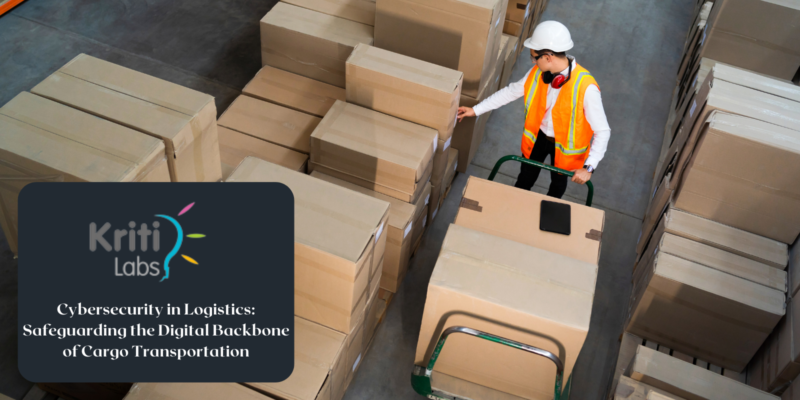
In today’s interconnected world, shipping and logistics play a vital role in ensuring the smooth operation of businesses and the delivery of essential goods. However, this industry is not immune to cyber threats. Recent incidents have highlighted the vulnerabilities faced by trucking and logistics companies, making it crucial for them to adopt a strategic approach to security on the road.
Recent Cyberattacks on the Logistics Sector
The trucking and logistics industry experienced a significant number of cyber attacks in 2020. In October, a U.S. flatbed trucking group fell victim to a ransomware attack, which resulted in the Conti ransomware group posting files from the affected company on the dark web. Another trucking and freight transportation logistics company faced a Hades malware infection in December, forcing them to take all their IT systems offline.
Even the COVID-19 vaccine supply chain has not been spared. In a highly targeted attack, a threat actor infiltrated a German biomedical company critical to the COVID-19 cold chain by using phishing emails. They then exploited their access to launch further phishing attacks on the company’s partners involved in vaccine transportation.
Cybersecurity Challenges in the Trucking and Logistics Industry
Trucking and logistics companies face several unique cybersecurity challenges. One of the key challenges is balancing defense with the use of modern tools. Many businesses in this sector rely on Internet of Things (IoT) devices and sensors to monitor and manage their supply chain operations. While these devices provide valuable insights, they often lack built-in security measures, making them vulnerable to exploitation by malicious actors.
The supply chain itself is also at risk due to the interconnected nature of the industry. Trucking and logistics entities often grant network access to vendors, partners, and suppliers to improve connectivity and efficiency. However, this also increases the attack surface, as a compromise of one third-party can lead to a breach of the entire network.
Additionally, many trucking and logistics organizations lack the necessary expertise to defend against digital threats. A report by Eye for Transport (EFT) revealed that less than half of these companies had a chief information security officer (CISO). This lack of cybersecurity leadership leaves them without a formal plan to address threats and undermines the importance of a robust defense.
Best Practices for Cybersecurity in Logistics
To mitigate the risks and enhance cybersecurity in the trucking and logistics industry, organizations should adopt a strategic approach and implement best practices.
1. Choose Secure Vendors
When selecting vendors for IoT devices and other smart products, it is crucial to prioritize security. Look for vendors that release firmware updates remotely and allow customers to change default admin credentials. This ensures that vulnerabilities can be patched promptly and that access to devices is protected.
2. Implement Network Segmentation
To prevent the spread of potential compromises, consider implementing network segmentation. This involves isolating IoT devices from the rest of the IT network, minimizing the impact of a breach on the overall system. By compartmentalizing the network, organizations can limit lateral movement by attackers and protect critical assets.
3. Establish Strong Vendor Partnerships
Building strong partnerships with vendors, suppliers, and partners is essential for supply chain security. Require vendors to complete a risk assessment as part of the service-level agreement to maintain the business partnership. By understanding the security posture of each partner, organizations can identify and remediate vulnerabilities, such as implementing data encryption and other security best practices.
4. Develop an Incident Response Plan
Preparing for potential security incidents is crucial. Develop a comprehensive incident response plan that outlines the steps to be taken in the event of a breach or cyber attack. This plan should include procedures for isolating affected systems, notifying stakeholders, and initiating recovery processes. Regularly test and update the plan to ensure its effectiveness.
5. Engage a Managed Security Services Provider
Collaborating with a trusted managed security services provider can greatly enhance an organization’s cybersecurity program. These providers offer expertise and guidance in navigating the evolving threat landscape. By partnering with them, trucking and logistics organizations can access the security knowledge and resources needed to minimize digital security risks effectively.
Conclusion
As the backbone of our lives and businesses, the shipping and logistics industry must prioritize cybersecurity to protect against the growing threat of cyber attacks. By adopting a strategic approach and implementing best practices, organizations can safeguard their digital infrastructure and ensure the safe and efficient transportation of goods. With the right security measures in place, the industry can continue to thrive and meet the evolving challenges of the digital age.
Remember, KritiLabs provides Secure Logistics solutions for businesses of all sizes, helping to ensure the safe and efficient transportation of goods. Their logistics and ecommerce solutions streamline operations, from order fulfillment to final delivery. Services include warehousing, inventory management, and last-mile delivery, all supported by advanced tracking and analytics technology.











